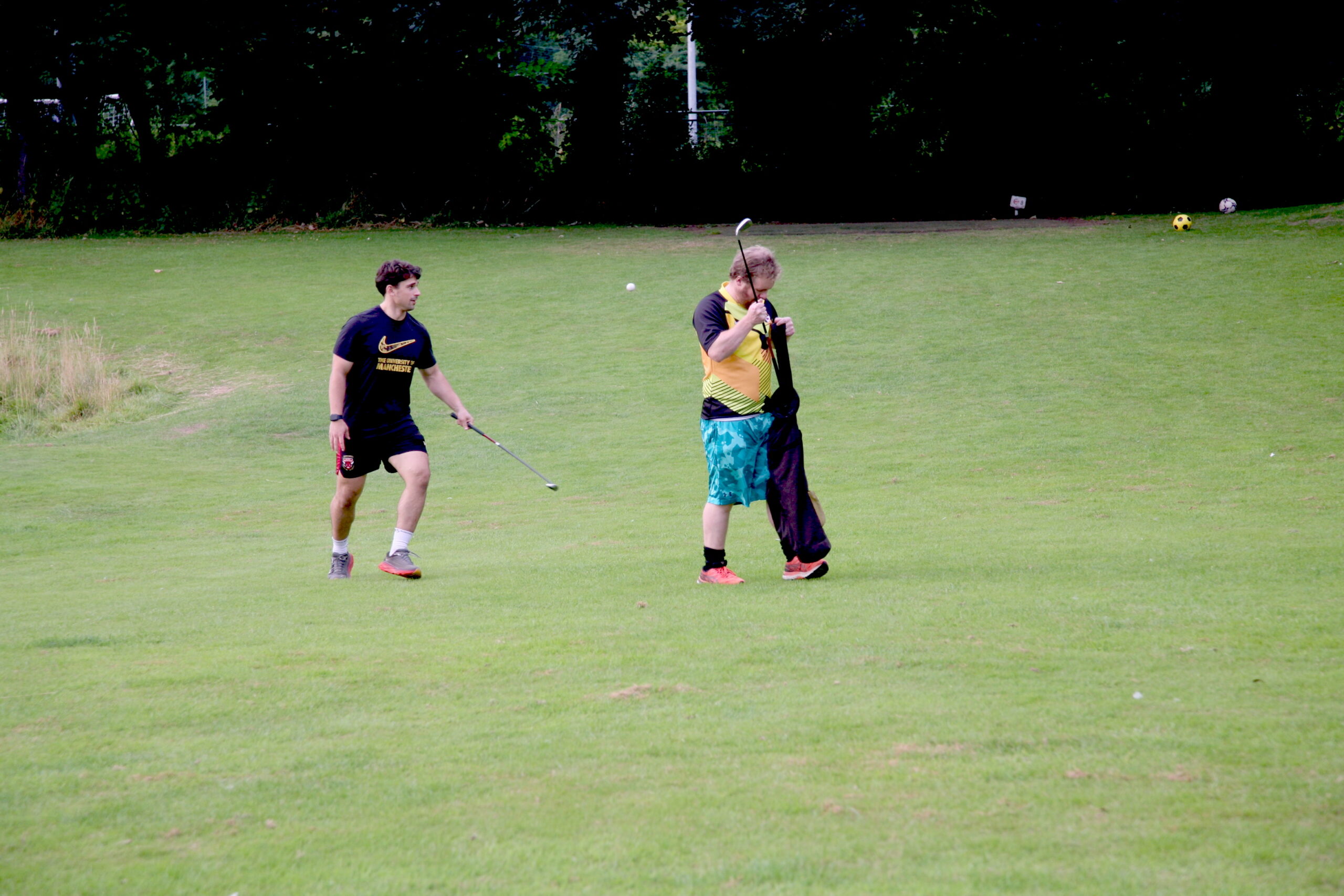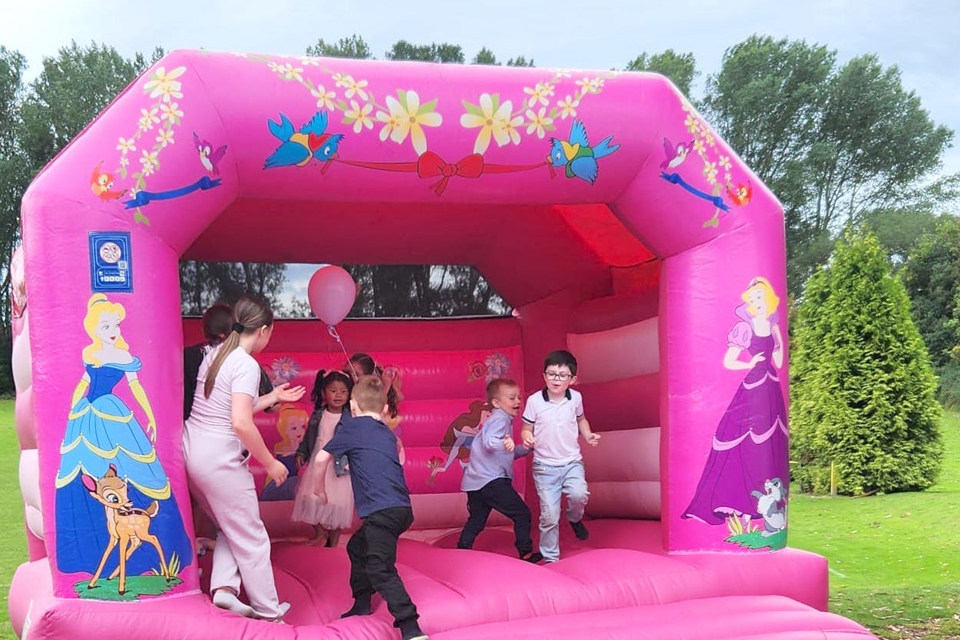Interview with Steve Wilock: Part 1 – Rugby

Burnage Rugby Football Club is a hidden gem. Nestling in 11 acres of green fields between Stockport and Didsbury, it is not only a sporting fixture for hundreds of people each week, but also offers a fantastic venue for corporate events, parties, weddings, and even funerals. I spoke to the MD Steve Willock about how the club is positioning itself to move into the future.
Q: Hi Steve, tell me a little about the history of the club and how you came to be part of it.
A: The club was formed in 1936-37, originally at Burnage Grammar School. Then Emerson gifted 3.5 acres of land in the mid-1970s and we moved to Varley Park, which is where we have been ever since. In the past 88 years, we’ve had a lot of ups and downs. There have been times when we have been running 5 senior teams plus a Veterans team, and a large junior section. We’ve had a ladies’ team which we are hoping to get going again with the recent appointment of a ladies’ champion to our committee. But things have changed. Like all grassroots rugby clubs, we are having fewer young people come through. Rugby is contracting and contracting, with mainly only the private and grammar schools playing rugby, and they have their own teams. I don’t see that changing unless the education system changes.
Q: So how is the club run now?
A: Most clubs now only run a maximum of 3 senior teams. Other changes have had an impact. Joining the Rugby League has had its pros and cons. The pros are that it’s structured and you’re playing in a league and it’s competitive. The cons are that sometimes it’s hard to get a team for say the 3rd team out on a Saturday afternoon. There may be an injury, or family commitments since they may be older players. But if you forfeit three games in a season or give the opposition a bye for not playing a fixture, they will strike you from the league. And we’ve always said that’s a pretty negative approach when we are trying to keep rugby afloat. So as big a facility as we are, we have been affected by this too, and currently are running only 2 full-time senior teams. We do have about 300 children playing on a Saturday morning from 5 through to 14 and with some of the older age groups we have combined with other local clubs to keep a full-sized team going. We have a casual Vets team that’s going to start playing again this season, but just with a handful of fixtures. We are in good nick with our first two teams. They are playing to a good standard and are very secure in the league standard where they are playing now. The club is flourishing in that respect with children coming through but it’s not at the scale that it once was and I don’t think it ever will be, frankly, unless something shakes up in the education system.
Q: Do you think people are more risk-averse?
A: The risks of rugby have been well documented, particularly recently, a lot of it’s come from America based on head injury. But rugby is a very different game to American Football, so I don’t really get the direct comparison. Yes, rugby is a contact sport, and nothing wrong with that. Yes, you do sadly get injuries and some of those injuries can be quite severe, but they’re very rare and we as a rugby community and those of us who are “leaders” in those rugby communities have a firm belief that the benefits of all age groups playing rugby are far greater than the risks.
Q: Are there different attitudes in rugby from other sports?
A: The attitude of footballers on the field towards a referee is very different to the attitude of rugby players on the field towards a referee or other officials. And to the opposing team. You’ll see him knocking 10 bells out of one another on a pitch but then they walk through the door arm in arm and buy each other pints. The referee is referred to as Sir or Madam by old and young alike. We are custodians of that kind of sports attitude, really, and I think everybody that is involved in grassroots rugby and indeed all the way up to professional rugby is quite proud and keen for that to continue.
Q: So how did you become involved?
A: I went to a grammar school and played rugby. I gave it up when I left school, but then one day someone said do you fancy coming to play at Burnage Rugby Club? I went along to training and that weekend played the in the 5th team. By the next week, I was in the 2nd team. That was about 1984, and I’ve just kept going. Over the years I played in every team from 1st to Vets. I’ve coached the kids. I’ve been a club president. I’ve been the club chairman. I was six years as President and 7 years as Chairman. Because of my background in business, I’ve always had a hand in the commercial aspects of the club, so in 2015 when we changed the structure of the club to become a Limited Company it made sense for me to become MD.
Q: What did the changes in structure do?
A: For commercial purposes, there has been a massive investment in the club. There was the golf course followed by footgolf, and of course the huge car boot sales. But there was an overall improvement of the facilities, such as in the clubhouse and its capabilities, the marquee, the patio areas, all that make it a much more popular venue for events both corporate and private parties. And even funerals and weddings and birthday parties and christenings and goodness knows what. It all happens here and that makes us not just a rugby club anymore. It makes us a commercial operation. It needed to be professionally managed. And that’s why I took the position of managing director and my colleague Paul Wilson, who’s also played rugby here even longer than I have! He is a chartered accountant, and he acts as the finance director. Between us, we run the commercial side of the club.
Q: One thing that comes across strongly is how important it is to you to be part of the local community.
A: Very much so and not just from the sports perspective either. It’s an 11-acre Parkland site and gets used by lots of different people for different things. The original gift of 3.5 acres was for recreational sport so a rugby club could be run on it. The rest of the land is leased on a long-term basis for recreational sports use. Given that history, it’s only right that we try and maintain and continue this as a community. As I say, there’s a car boot here every Sunday morning through the summer months usually from April through to early September. And it’s one of the biggest in the area now. Well over 350 people set up stalls here and that’s a huge draw from the local, very diverse community. We feed them, there might be some music on, and there might be other things going on during that day as well. On the sports side rather than just being a rugby club, or the pitches being used for football, we’ve introduced things like footgolf and golf. The golf course was built with the financial aid of a charity in St. Andrews to support community golf. So we have a full-sized 9-hole golf course, but then we got badgers. Rare ginger badgers were damaging the greens so we decided that it was far better to convert the golf course into a foot golf facility. Didn’t know anything about foot golf. Do you know what is the concept? Well, you get a big hole in the ground, and kick a football into it! Sounded a bit crazy to me, but we thought we’d have a go with it. And the consequence of that was literally hundreds and hundreds and hundreds of people came to play golf. And when it was Lockdown but people were still allowed to do some outside sports things we were mobbed with it. And we became Manchester Footgolf.
Q: So it is still a growing sport?
A: It’s still huge, yeah. And because of this: Where other local clubs have had a go at Footgolf they don’t have the experience we do. We’ve been playing rugby for 88 years here, and Footgolf is a favourite of stag parties and hen parties. But there’s nothing they can do that we haven’t seen. Where other footgolf courses say no you can’t play a round in a tutu, we encourage it! So we have hit quite a rich seam and are working with other corporate companies like Red Cactus. So now we have people coming from all over the country to play footgolf on their stag or hen do in Manchester.
This club is going to survive. I’ve seen too many good clubs go to the wall because they didn’t manage the commercial side of things properly. That is not going to happen to us.
OTHER NEWS
Staying Healthy in Body and Mind as the Days Grow Darker
The nights are getting colder and darker, and it is more and more tempting to stay on the couch in front of the telly with a brew or a can. However Christmas is coming and that means a lot of eating. So now is the time to put in the work and make sure you are still in shape when the eating season comes along.
Christenings at Burnage Rugby Club
Nine months after Christmas and New Year are September and October, and guess when the most babies are born? That’s right, September and October, so if you are having a baby around now, it’s time you started planning that Christening!
Kid-Friendly Parties at Burnage Rugby Club: Ideas and Activities
Planning a party for the little ones is a tricky task. How do you even begin to keep 30+ kids entertained for at least an hour, maybe more? Well, we’ve come up with a list of helpful ideas and activities to help you get the ball rolling.
Quick Contact
If you have any questions regarding the club facilities and activities please do get in touch.




